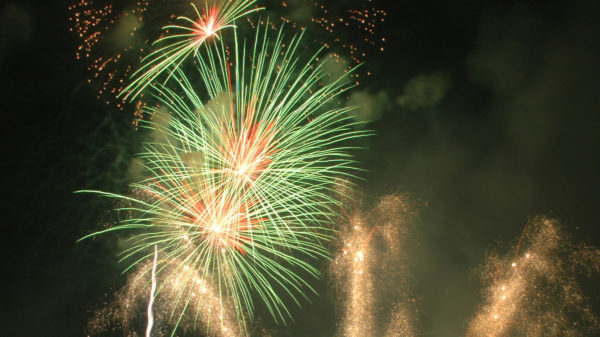
Owners and tenants will be held liable for illegal firework activity on their property
By Gus Herrera
Much to the delight of those who appreciate peaceful sleep (and their canine buddies) the City of Pasadena has stepped up efforts to deter the use of fireworks before the Fourth of July holiday.
At their latest regular meeting, the Pasadena City Council unanimously approved modifications to the city’s municipal code that will make property owners and tenants liable for any fireworks “used, possessed, sold, or discharged on their property,” according to city staff’s report.
The strengthened ordinance aims to give the fire and police departments the ability to enforce the city’s fireworks prohibition, even if the perpetrator is unable to be identified, as is typically the case.
Pasadena Fire Captain Wendell Eaton revealed to the council that enforcement has been difficult because once police/fire arrive on the scene, the fireworks have already been discharged and nobody claims responsibility, “there aren’t a significant amount of citations issued, because when we arrive, it’s over … often times we’re not issuing citations … we’re literally jumping from call to call trying to stop the activity.”
According to Eaton, the police and fire departments respond to an average of 140 calls to service on the Fourth of July – each of which costs the city approximately $2,300, per Fire Chief Bertral Washington.
Under the new changes, any city enforcement officer who is authorized to give citations will be able to cite a property owner/tenant who is “knowingly” present on site during the possession, use, sale, or discharge of fireworks, according to City Prosecutor Michael Dowd. If an owner/tenant is not on site during the violation, he/she will not be prosecuted, but will instead be mailed a notification, letting them know of the illegal activity and their responsibility to deter it.
According to Dowd, once the owner/tenant has been made aware of the illegal activity, the “knowingly” condition of the code will effectively be satisfied and any future violations will most likely result in prosecution, unless the owner/tenant proves that he/she has made a substantial effort to deter the activity, but to no avail.
In addition, fireworks-related violations will now able to be categorized as either an infraction or misdemeanor, at the discretion of the city prosecutor. Those caught on their first offense might receive an infraction, while violations perpetrated by “repeat customers” will most likely result in a misdemeanor, according to Dowd.
Dowd also revealed that the types and number of fireworks involved will also play a role in determining how the city prosecutes the offense, as well as how cooperative the violator(s) may be.
According to staff’s report, the additional flexibility will allow the city prosecutor to “resolve cases in a more efficient manner and allow for greater collection of fines, fees, and disposal costs.”
Under the new ordinance, all costs related to the disposal of seized fireworks, “as well as all additional expenses, fees, and fines,” will be “borne by the offending party.”
According to Eaton, disposal of the hazardous material costs the city an approximate $100 per pound of fireworks.
Fines will range from $500 to $1,000, depending on whether the violation is categorized as an infraction or misdemeanor – although there will be no cap on the “costs related to disposal or other expenses.”
The agenda report also revealed that this type of change would typically go through the city’s public safety committee process first, but immediate action was required in order to allow the new ordinance the 30 days necessary to go into full effect before July 4.
By approving the move in advance of the holiday, Mayor Terry Tornek hopes the city will be able to identify patterns of which properties are the “biggest violators.”
As many residents are aware, the firework shenanigans inevitably begin weeks ahead of Independence Day, so, once violating properties have been identified, the city can send out notifications and owners/tenants will already have been put on notice before the Fourth.
Vice-Mayor John Kennedy and Council Member Tyron Hampton lauded the city’s move to put the “onus back on the property owners,” but cautioned against the new law’s potential to criminalize the city’s youth.
Hampton feared the possibility of having a fireworks-related violation essentially generate a criminal background.
Although Kennedy did not believe that the ordinance “moves in the direction of criminalizing children,” he too argued that the possibility should not be taken lightly and suggested that admonishing and educating young persons could have just as strong of an impact in deterring illegal firework activity.
Council Member Victor Gordo suggested incorporating transparent guidelines that are “clear enough for people to understand when they’d be charged … so officers aren’t put in position of being accused of abusing authority.”
Fire Chief Washington assured council that the fire department’s annual Fourth of July outreach campaign will clearly outline the parameters of the new ordinance.
The second reading will be held on Monday, May 21.







